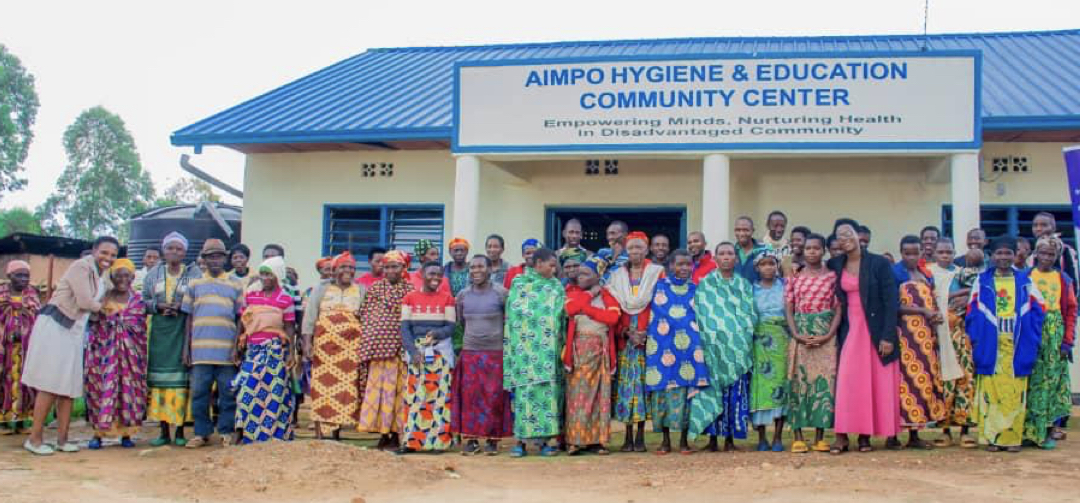African Initiative for Mankind Progress Organization
Strengthening Batwa Communities through Access to Fundamental Rights, Cultural Preservation and Economic Dignity
about aimpo
About African Initiative for Mankind Progress Organization
Founded in 2001, the African Initiative for Mankind Progress Organisation is a nationally recognized, non-governmental and non-profit Batwa-led organization, dedicated to advancing the rights of Rwanda’s Indigenous population, legally categorized as ‘Historically Marginalized Peoples’.

The Batwa are widely recognized as the Indigenous inhabitants of Africa’s Great Lakes Region. Their ancestral territories lie in the equatorial forests of Rwanda, Uganda, Burundi, and the Democratic Republic of the Congo. For millennia, these forests provided the Batwa with sustenance, medicine, shelter and spiritual references, but they were evicted from their homelands in waves of transnationally-influenced “conservation” and “development” throughout the 20th century.
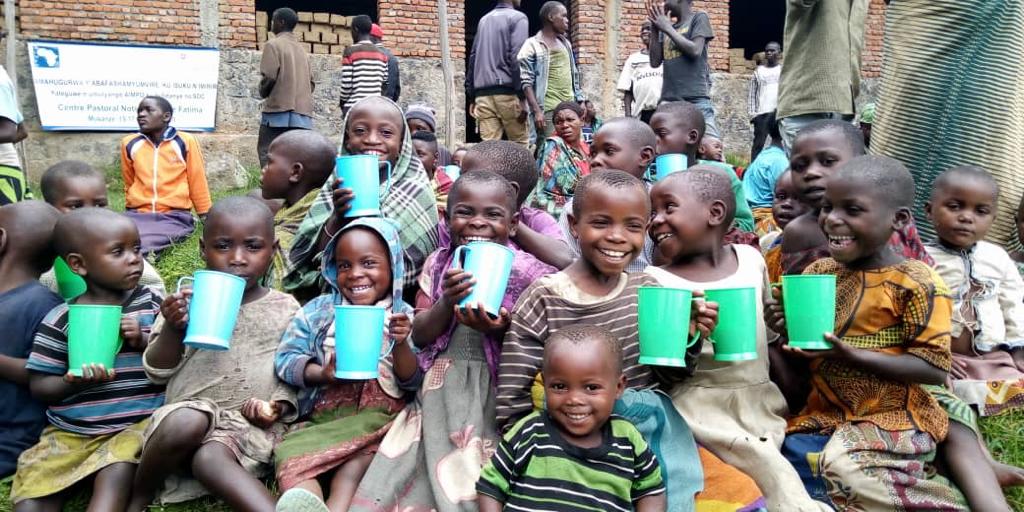
In Rwanda, the situation is further complicated by the government’s ‘de-ethnicization‘ campaign to remove ethnic identity from public discourse and policy after the 1994 Genocide against the Tutsi. As a consequence, the Batwa have become even further marginalized because their invisibility is now institutionalized. Officially, the Batwa aren’t considered Indigenous Peoples (like they are in Uganda, the DRC or Burundi), but Historically Marginalized Peoples.
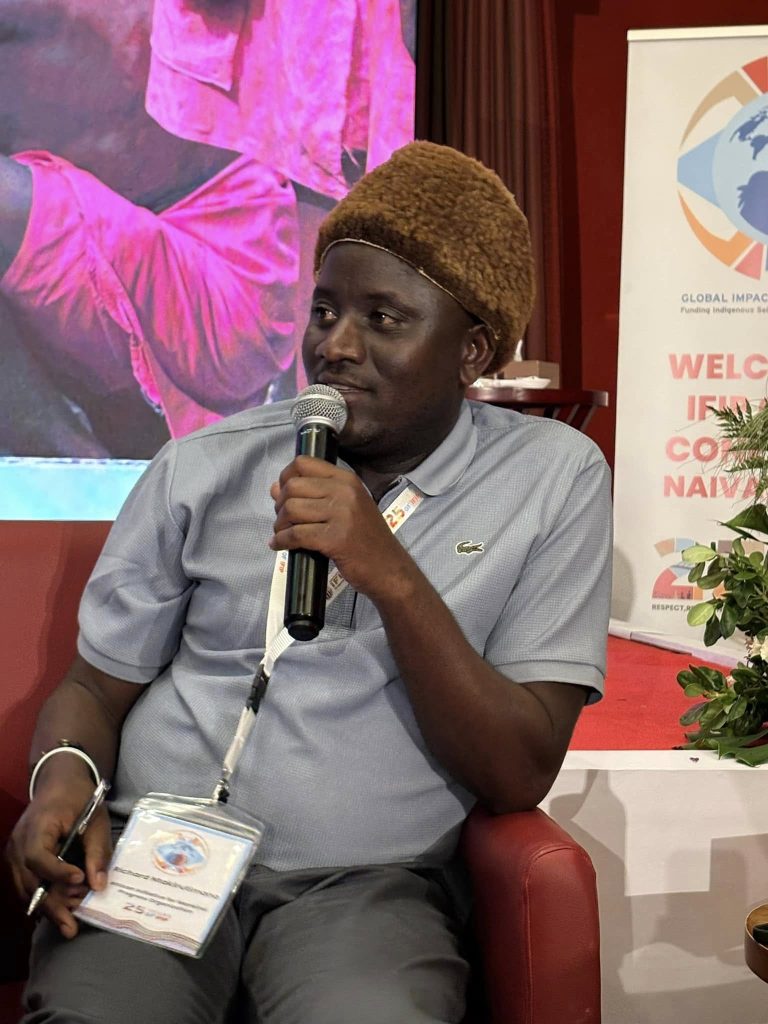
Led by Executive Director Richard Ntakirutimana (Batwa) and a board and team of mostly women, AIMPO’s mission is to advance individual and collective rights, facilitate sustainable development, and promote social, political, and economic integration of the Batwa into mainstream society. The organization operates through two main structures: a national headquarters in Kigali and regional representatives across Rwanda’s five provinces.

Their core programs include:
⊃ Food Sovereignty: Training in agroecology and farming methods
⊃ Economic and Livelihood Opportunities: Skills development and income-generating initiatives that respect Batwa cultural values
⊃ Culture & Identity: Preservation of traditional music, dance and pottery techniques
⊃ WASH: Access to water, health and sanitation
⊃ Education: Scholarships and support for community schools, including school meals, as well as a community-operated Early Education Centre
⊃ Land Rights: Advocacy and legal support for rights to land, sacred sites and natural resources
⊃ Inclusion: Specific programs for Batwa women, youth, and persons with disabilities
Our partnership
Our partnership
A Shared Commitment to Self-Determination
Our partnership with AIMPO began in 2022, when we learned about their work through an advisory committee member. We were immediately impressed by their holistic, community-centered approach to addressing the complex challenges facing the Batwa in Rwanda.
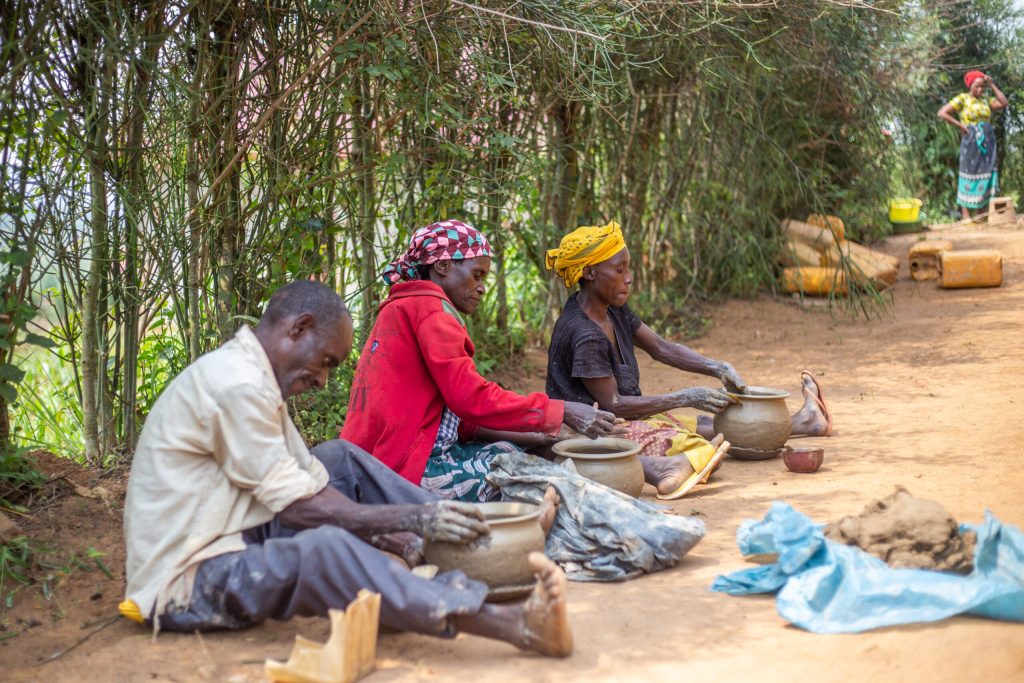
Throughout 2023 and 2024, AIMPO presented us projects that respond to community-identified priorities. One of our most significant collaborations involved supporting the Health and Hygiene Education Center in Gicumbi, which included constructing sanitation facilities and developing educational materials on hygiene practices.
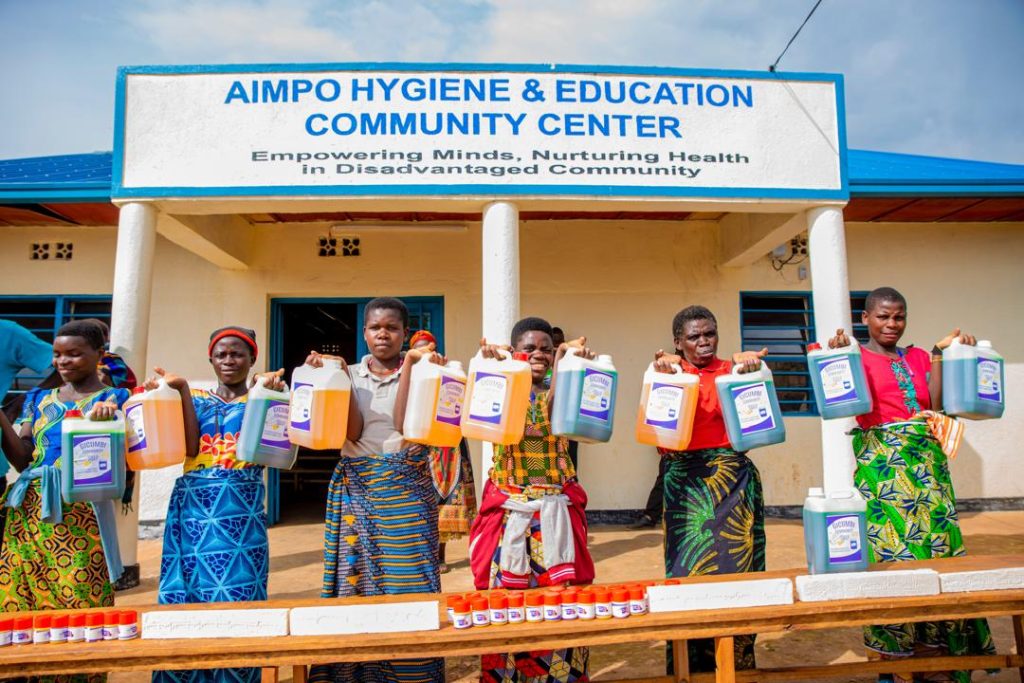
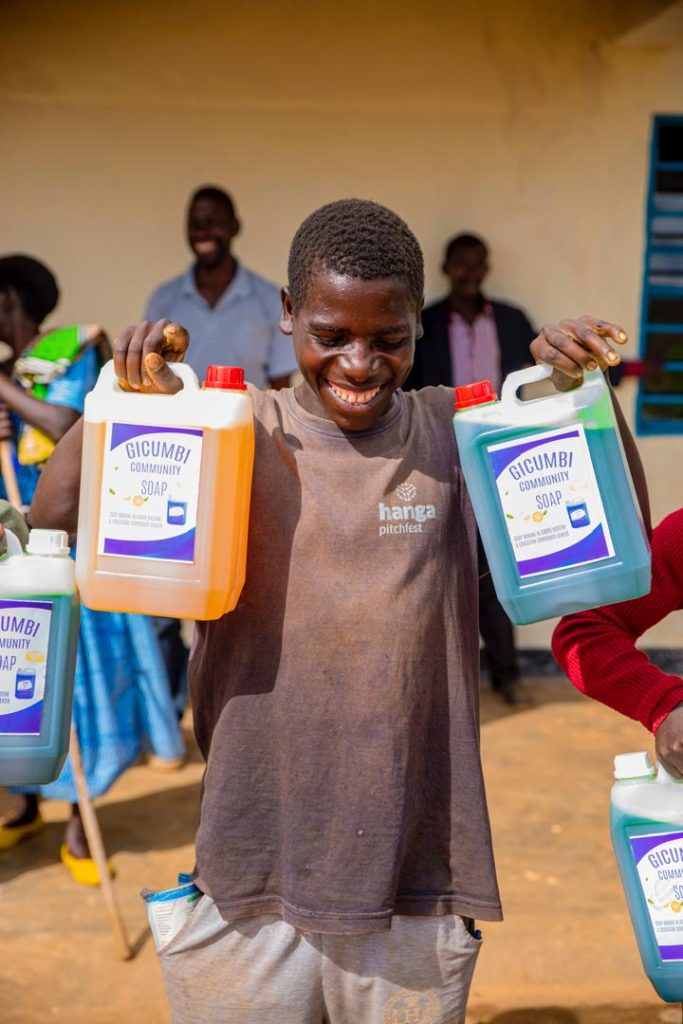
This center serves not just as sanitation infrastructure but as a focal point for community education and capacity building. AIMPO organized door-to-door awareness campaigns and trained faith leaders and local leaders to spread hygiene messages.
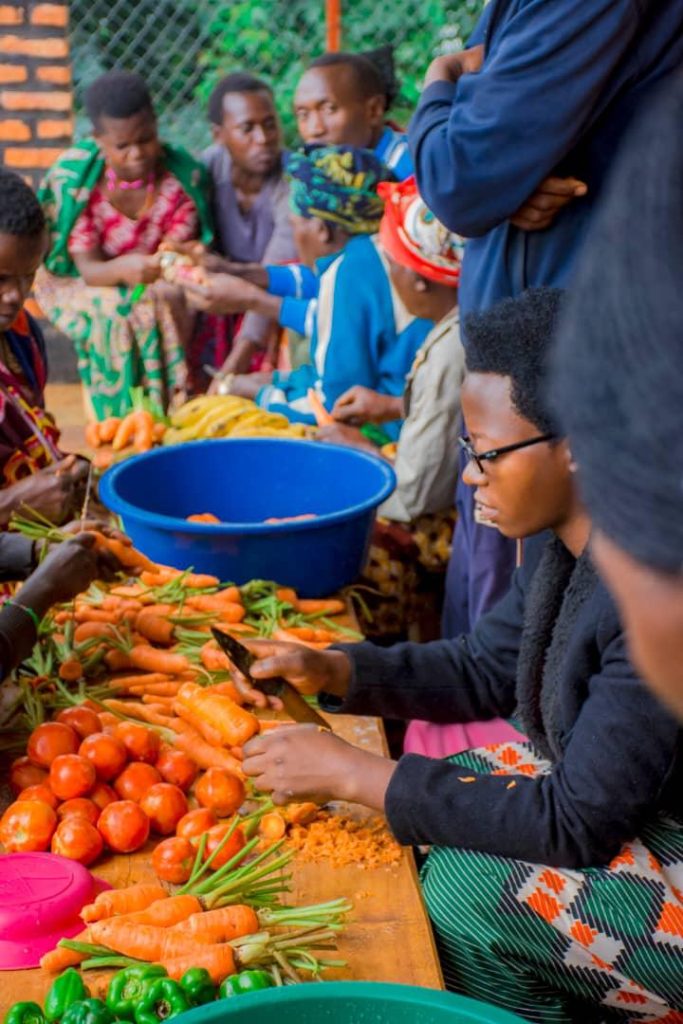
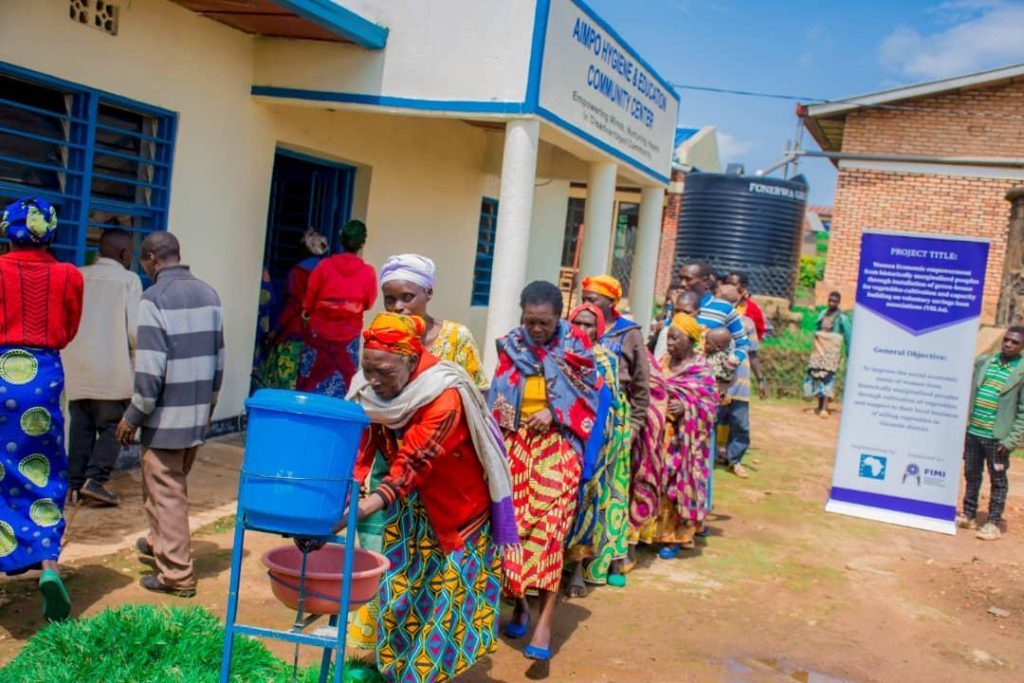
In 2023 we collaborated on drafting and submitting proposals for the Aqua Rise Project, a transformative initiative that combines traditional pottery knowledge with modern technology to create accessible, effective, ceramic water filters. For this project, we supported Richard Ntakirutimana’s training in a factory that produces these filters in Kenya. This project represents not just a solution to health problems related to contaminated water, but also an opportunity for dignified, culturally relevant and sustainable employment, particularly for Batwa women.
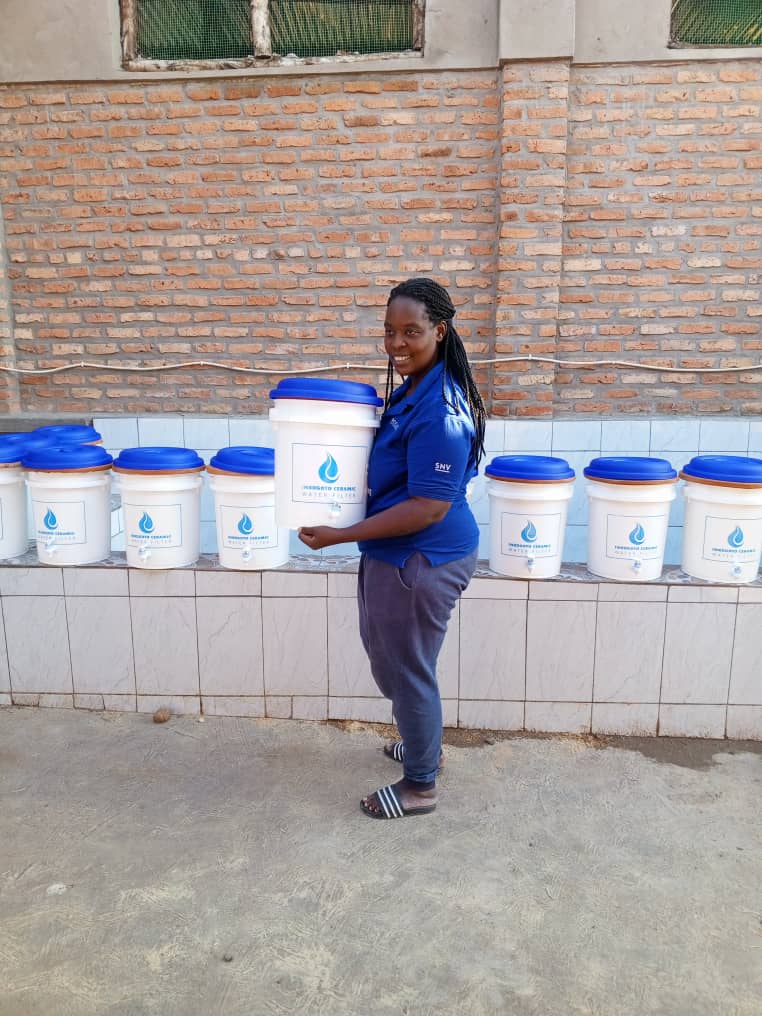
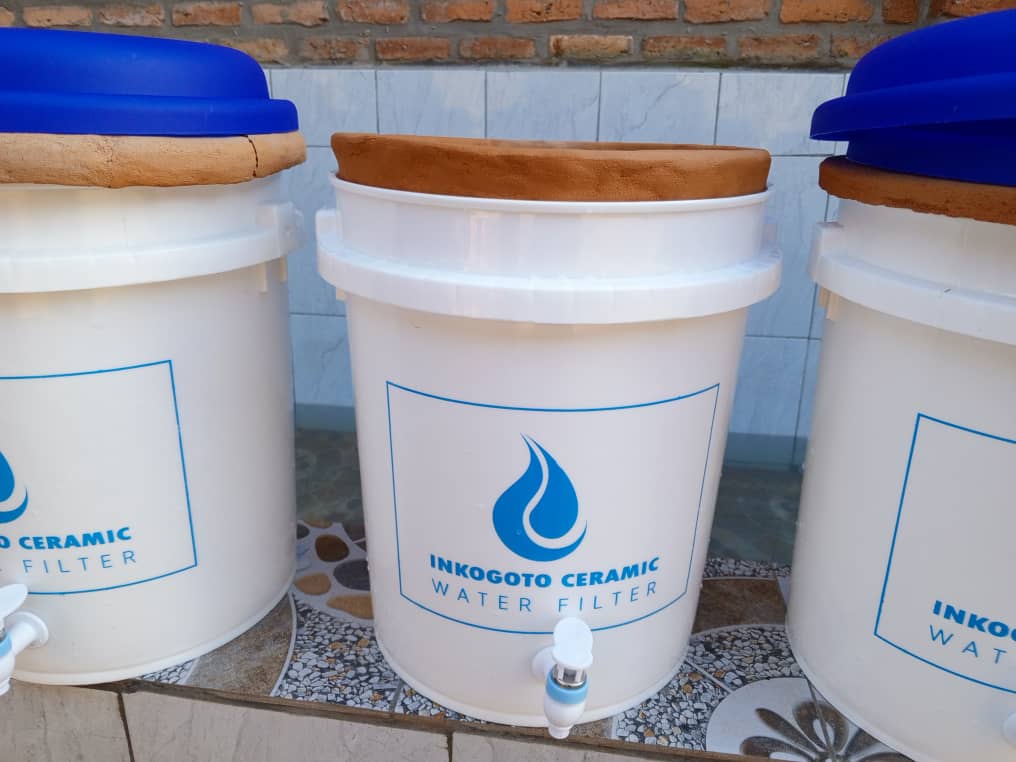
Our partnership also included supporting a school meals program in collaboration with the Women’s Bakery, providing meals for children, pregnant women and elders. This program directly addresses critical nutritional needs while supporting education and community wellbeing.
But AIMPO goes far beyond relief when given the chance, and when the local government provided a rare window of access to two hectares of arable land, AIMPO identified a unique opportunity to sustainably address food insecurity issues, one of the most critical challenges facing the community in Gicumbi. We provided support that catalyzed this agroecology initiative and funded agricultural inputs and tools. The results speak for themselves—their first harvest yielded over a ton of potatoes.
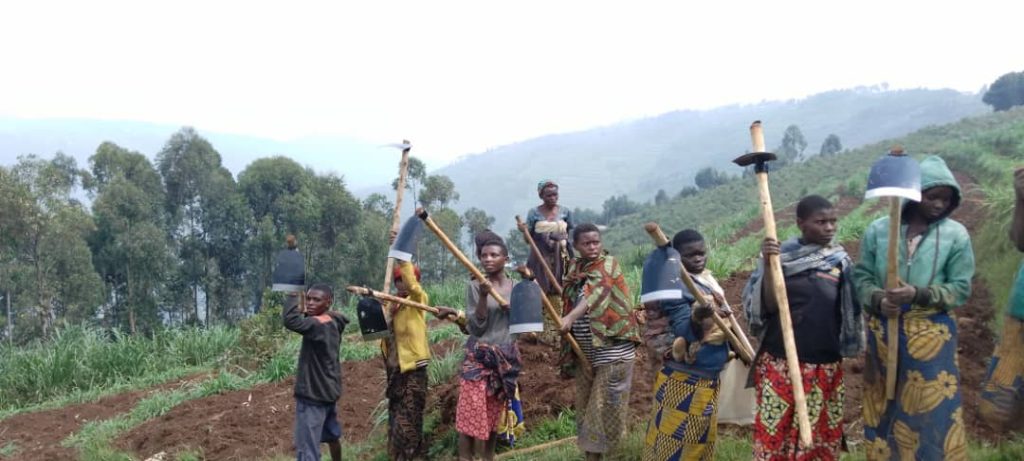
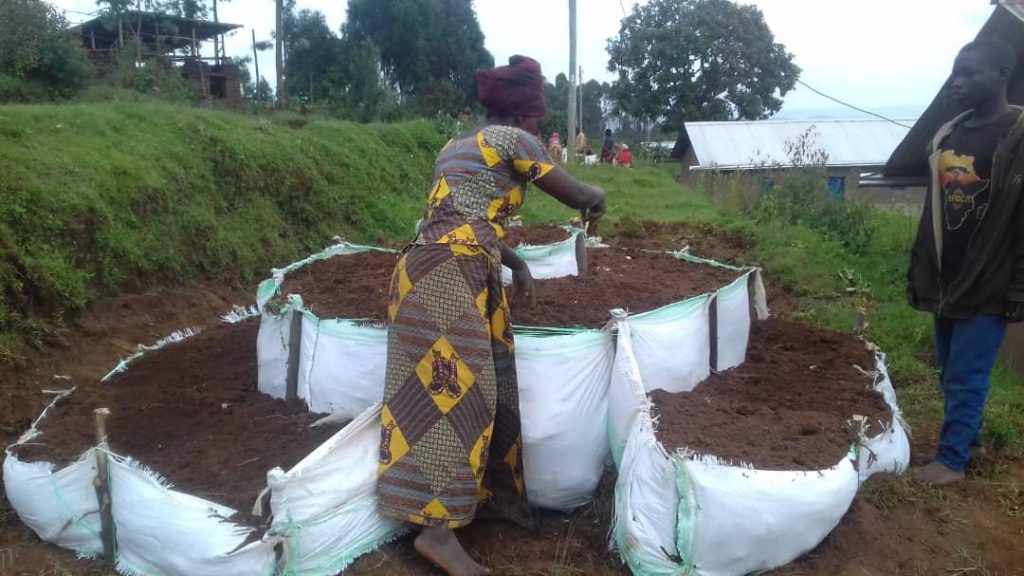
More recently, we began collaboration to support AIMPO with the Inkogoto Cultural Center—a vital cultural sanctuary for the Batwa community. Named after the essential clay material that gives traditional Batwa pottery its distinctive smooth finish, this center represents AIMPO’s vision of cultural preservation as a pathway to economic dignity.
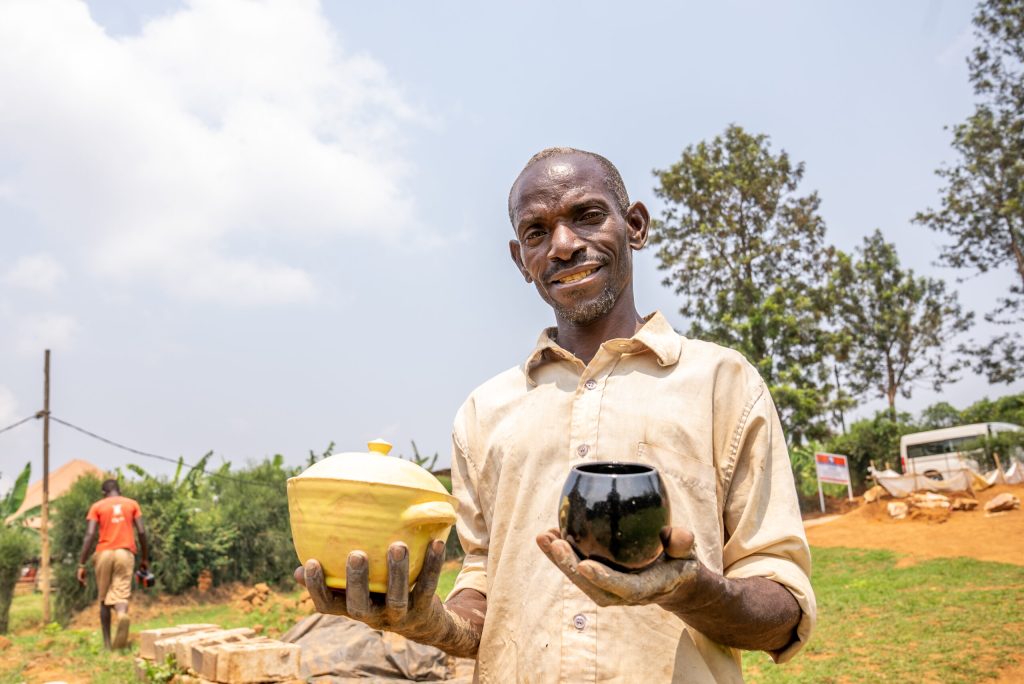
They are currently working on critical infrastructure improvements to transform what began as a modest cultural initiative (but already fairly employing 66 people) into what will become a sustainable enterprise with potential to employ dozens more of community members and generate reliable income.
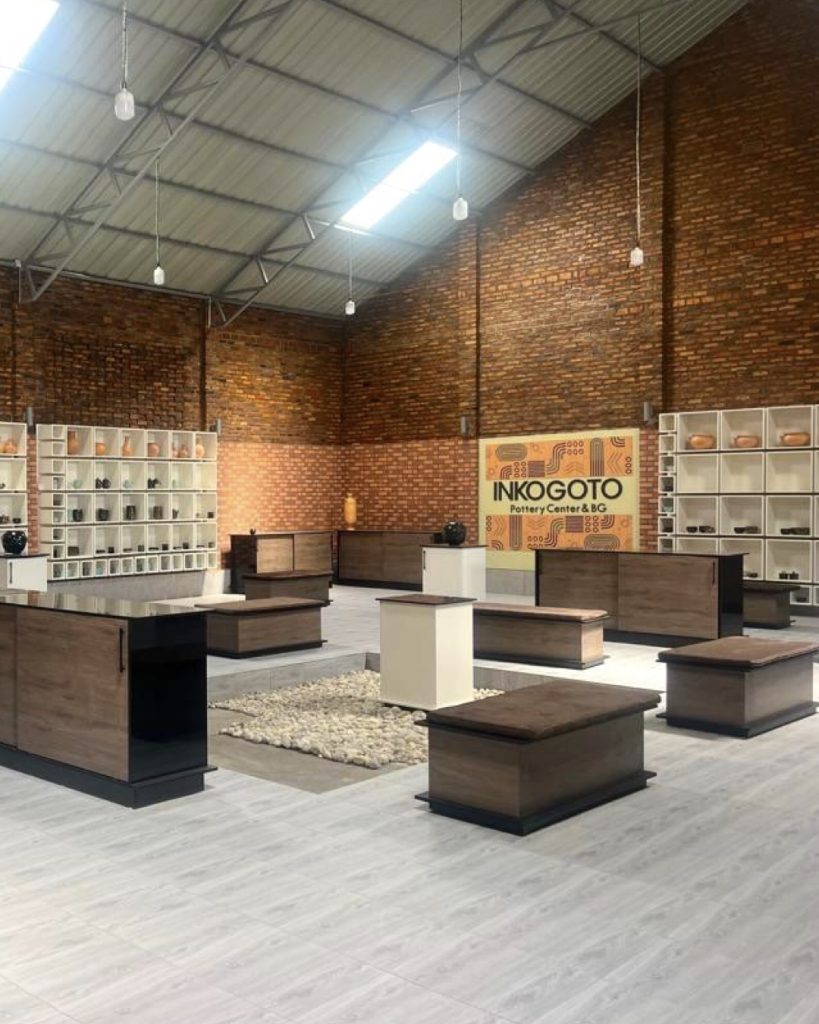
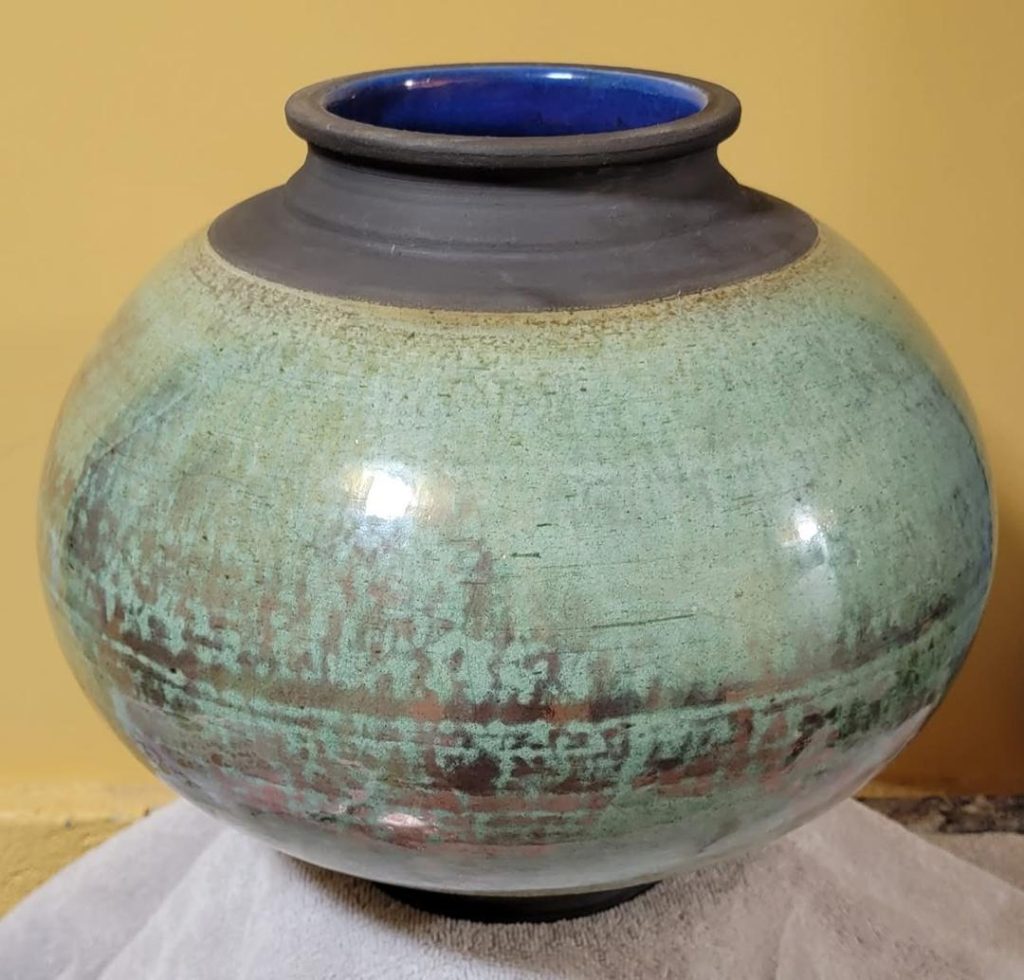
The center aims to preserve irreplaceable traditional knowledge and important cultural expressions, such as music, dance, and pottery techniques while creating tangible economic opportunities in the near future—showing how cultural heritage and economic development can reinforce each other when approached through community leadership.
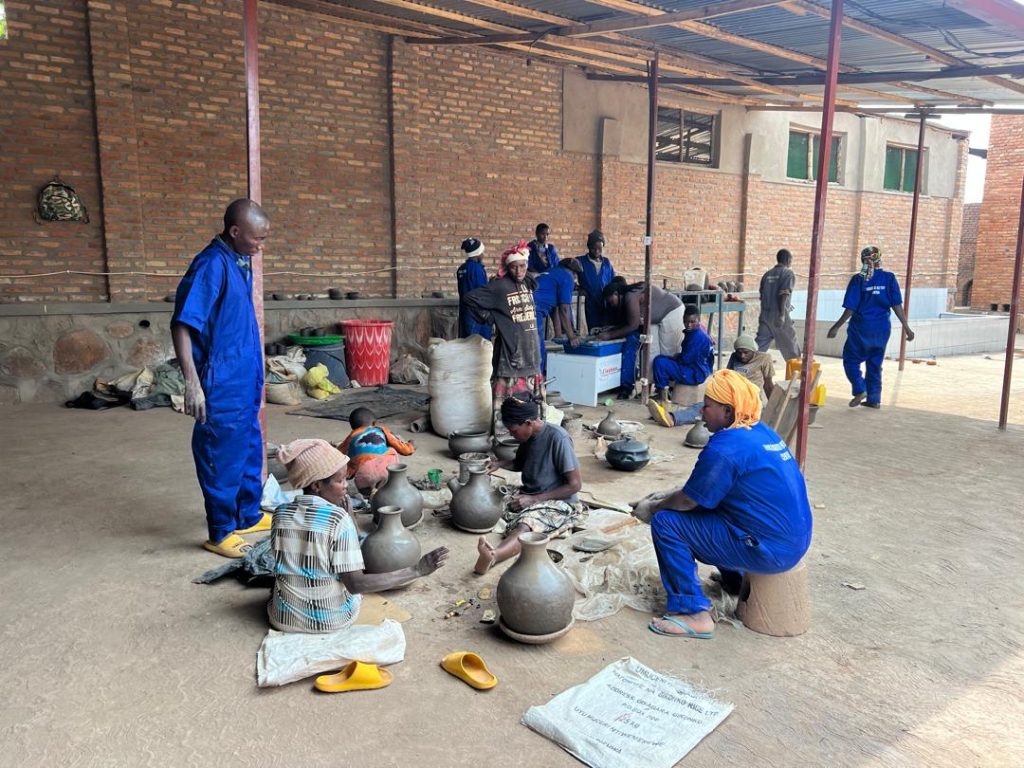
View this post on Instagram
Building Networks for Batwa-Led Change
Another crucial aspect of our partnership has been expanding AIMPO’s network of potential funders and partners.
In February 2025, we sponsored AIMPO’s participation in the International Funders for Indigenous Peoples (IFIP) Global Conference in Kenya. At this event, Richard had the opportunity to present the organization’s work, creating valuable connections with potential funders and allies from diverse regions.
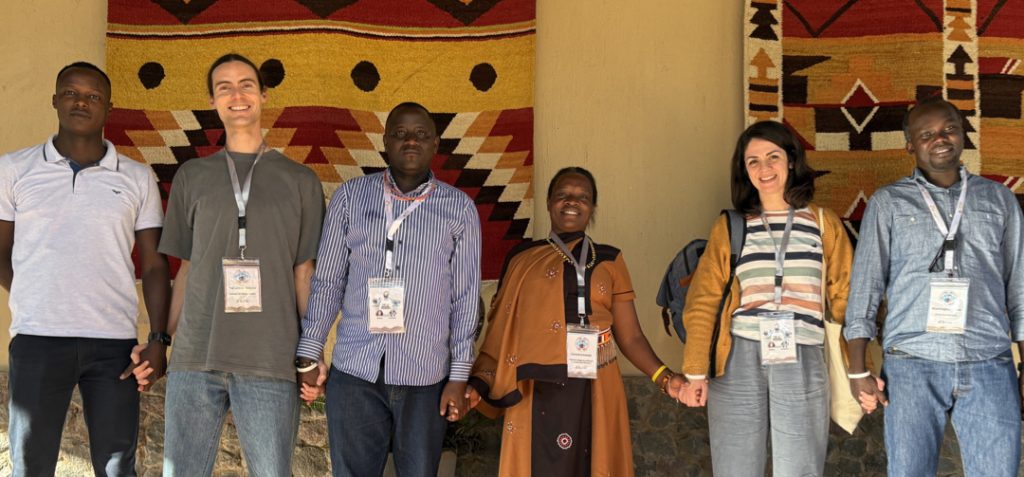
Months later, in June, we facilitated and supported AIMPO’s attendance at the 9th East Africa Philanthropy Network Conference in Kigali from June 11-13. This gathering proved particularly critical given the current philanthropic landscape, where the Global North—especially the United States—is dramatically pulling back from international giving. As traditional funding streams dry up and political shifts reshape donor priorities, grassroots organizations across Africa face unprecedented defunding. The conference brought together philanthropists and civil society organizations to urgently address this crisis: how can East Africa reorganize its philanthropic systems, strengthen regional networks, and develop sustainable funding models that don’t depend on increasingly unreliable external donors? For AIMPO, participating in these crucial conversations about building resilient, locally-rooted funding ecosystems represents not just networking, but survival strategy in a rapidly changing global landscape.
![]()
These international experiences serve precise strategic goals. Rather than speaking for the community, these forums allow Richard and his colleagues to directly represent Batwa interests to institutions that influence global environmental, social, and human rights policies. After these meetings, AIMPO brings valuable knowledge and networks back to their community.
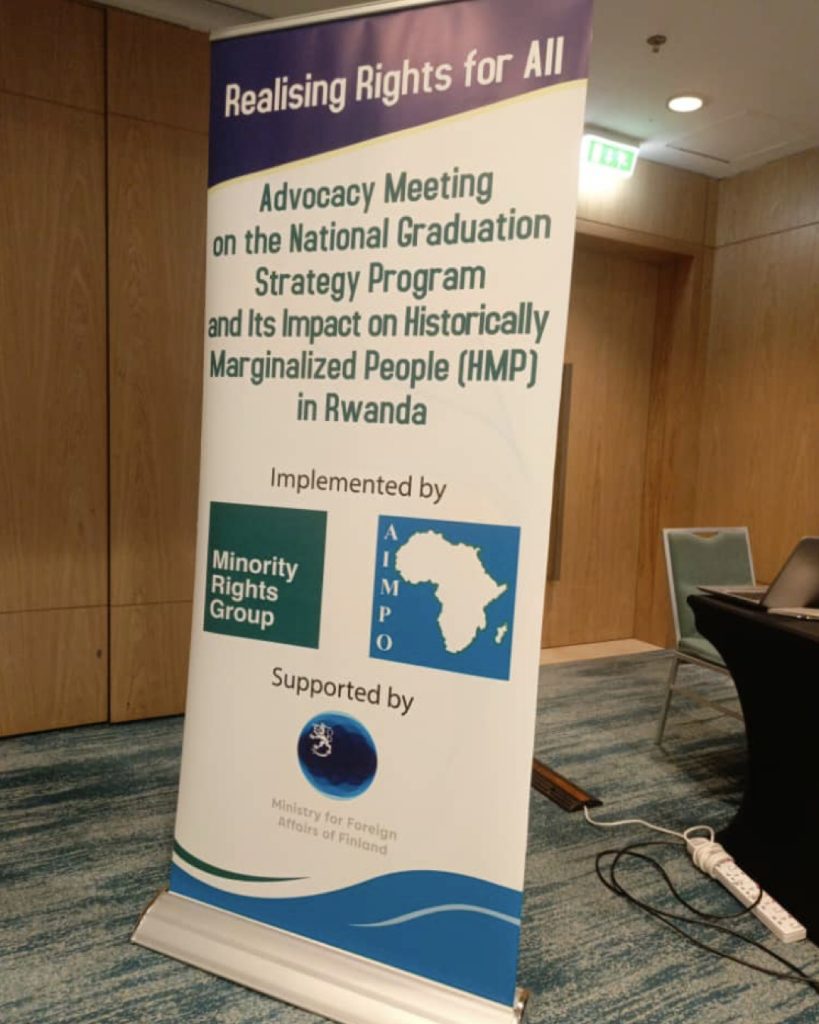
IMPACT
Impact
Since its founding, AIMPO has achieved remarkable results with very limited resources, demonstrating the effectiveness of Indigenous leadership in addressing complex challenges.
In Gicumbi, the Health and Hygiene Education Center has evolved beyond its original purpose into a vibrant community hub serving around 360 residents. While its ten community toilets provide essential sanitation infrastructure, the center has blossomed into a nexus for multiple forms of community empowerment. Community members gather to learn soap making, producing the “Gicumbi Community Soap” that provides a crucial health tool, household savings and income through sales at the local market. The center hosts workshops on reusable sanitary pad manufacturing, addressing both hygiene needs and economic opportunities. Its space also fosters knowledge exchange and workshops around nutrition and child development. What makes this approach remarkable is how a single physical space addressing basic sanitation has organically expanded into a catalyst for so many community initiatives—each building upon the community’s inherent determination to improve their circumstances and their unique capacity for cooperation, while developing practical skills that generate both health improvements and economic dignity.
The Aqua Rise project is in early implementation with the production of the first ceramic water filters. It currently employs 30 workers and has the potential to provide clean drinking water to thousands of families in the coming years, combining modern technology with traditional pottery knowledge.
The Inkogoto Center embodies AIMPO’s holistic approach to community development, recognizing that a community’s resilience is fed by its cultural foundations. This center is not just a production facility but a cultural sanctuary and sustainable social enterprise that serves as a model for Indigenous-led development. The team works with 36 community members (mostly women), producing 1,000 high-quality ceramic units monthly. This project not only preserves traditional Batwa pottery techniques but also generates a monthly income that directly benefits the community.
In the area of food security and nutrition, the school meals initiative, developed in partnership with the Women’s Bakery, provides daily bread and porridge to 257 children, pregnant women, and elders, directly addressing nutritional challenges facing the community. But rather than creating dependence, AIMPO’s agroecology initiative in Gicumbi empowers Batwa families through practical farming skills, tools and seeds to be able to feed themselves. Working on two hectares of community land awarded by local authorities, community members have transformed previously unproductive ground into food gardens. Beyond the tangible food production, the project has become a living classroom where knowledge transfer occurs naturally and resonates with Batwa connections to place and ecosystem.
Updates
Updates
News from the ground on projects, initiatives and collaborations.
Support
View this post on Instagram
View this post on Instagram
View this post on Instagram
View this post on Instagram
View this post on Instagram
View this post on Instagram
View this post on Instagram
View this post on Instagram
View this post on Instagram
Support
AIMPO is leading transformative work that deserves wide recognition and support. Their dedication to cultural preservation, economic development, and dignity for the Batwa represents a model of community-determined and led development that deserves to be celebrated and expanded.
To directly support this vital work:
> Visit AIMPO’s website to learn more about their ongoing projects
> Make a donation through their donation page to contribute to specific initiatives
> Contact the organization at info@aimpo.org to explore potential partnerships
Supporting AIMPO means contributing to the preservation of irreplaceable cultural heritage and building a more just and sustainable future for one of Africa’s oldest and most marginalized communities. AIMPO’s work goes beyond isolated projects—it represents a comprehensive vision where cultural identity serves as the foundation for economic dignity, social cohesion, and community resilience.
— Connect with AIMPO —
African Initiative for Mankind Progress Organization
Strengthening Batwa Communities through Access to Fundamental Rights, Cultural Preservation and Economic Dignity
about aimpo
About African Initiative for Mankind Progress Organization
Founded in 2001, the African Initiative for Mankind Progress Organisation is a nationally recognized, non-governmental and non-profit Batwa-led organization, dedicated to advancing the rights of Rwanda’s Indigenous population, legally categorized as ‘Historically Marginalized Peoples’.

The Batwa are widely recognized as the Indigenous inhabitants of Africa’s Great Lakes Region. Their ancestral territories lie in the equatorial forests of Rwanda, Uganda, Burundi, and the Democratic Republic of the Congo. For millennia, these forests provided the Batwa with sustenance, medicine, shelter and spiritual references, but they were evicted from their homelands in waves of transnationally-influenced “conservation” and “development” throughout the 20th century.

In Rwanda, the situation is further complicated by the government’s ‘de-ethnicization‘ campaign to remove ethnic identity from public discourse and policy after the 1994 Genocide against the Tutsi. As a consequence, the Batwa have become even further marginalized because their invisibility is now institutionalized. Officially, the Batwa aren’t considered Indigenous Peoples (like they are in Uganda, the DRC or Burundi), but Historically Marginalized Peoples.

Led by Executive Director Richard Ntakirutimana (Batwa) and a board and team of mostly women, AIMPO’s mission is to advance individual and collective rights, facilitate sustainable development, and promote social, political, and economic integration of the Batwa into mainstream society. The organization operates through two main structures: a national headquarters in Kigali and regional representatives across Rwanda’s five provinces.

Their core programs include:
⊃ Food Sovereignty: Training in agroecology and farming methods
⊃ Economic and Livelihood Opportunities: Skills development and income-generating initiatives that respect Batwa cultural values
⊃ Culture & Identity: Preservation of traditional music, dance and pottery techniques
⊃ WASH: Access to water, health and sanitation
⊃ Education: Scholarships and support for community schools, including school meals, as well as a community-operated Early Education Centre
⊃ Land Rights: Advocacy and legal support for rights to land, sacred sites and natural resources
⊃ Inclusion: Specific programs for Batwa women, youth, and persons with disabilities
Our partnership
Our partnership
A Shared Commitment to Self-Determination
Our partnership with AIMPO began in 2022, when we learned about their work through an advisory committee member. We were immediately impressed by their holistic, community-centered approach to addressing the complex challenges facing the Batwa in Rwanda.

Throughout 2023 and 2024, AIMPO presented us projects that respond to community-identified priorities. One of our most significant collaborations involved supporting the Health and Hygiene Education Center in Gicumbi, which included constructing sanitation facilities and developing educational materials on hygiene practices.


This center serves not just as sanitation infrastructure but as a focal point for community education and capacity building. AIMPO organized door-to-door awareness campaigns and trained faith leaders and local leaders to spread hygiene messages.


In 2023 we collaborated on drafting and submitting proposals for the Aqua Rise Project, a transformative initiative that combines traditional pottery knowledge with modern technology to create accessible, effective, ceramic water filters. For this project, we supported Richard Ntakirutimana’s training in a factory that produces these filters in Kenya. This project represents not just a solution to health problems related to contaminated water, but also an opportunity for dignified, culturally relevant and sustainable employment, particularly for Batwa women.


Our partnership also included supporting a school meals program in collaboration with the Women’s Bakery, providing meals for children, pregnant women and elders. This program directly addresses critical nutritional needs while supporting education and community wellbeing.
But AIMPO goes far beyond relief when given the chance, and when the local government provided a rare window of access to two hectares of arable land, AIMPO identified a unique opportunity to sustainably address food insecurity issues, one of the most critical challenges facing the community in Gicumbi. We provided support that catalyzed this agroecology initiative and funded agricultural inputs and tools. The results speak for themselves—their first harvest yielded over a ton of potatoes.


More recently, we began collaboration to support AIMPO with the Inkogoto Cultural Center—a vital cultural sanctuary for the Batwa community. Named after the essential clay material that gives traditional Batwa pottery its distinctive smooth finish, this center represents AIMPO’s vision of cultural preservation as a pathway to economic dignity.

They are currently working on critical infrastructure improvements to transform what began as a modest cultural initiative (but already fairly employing 66 people) into what will become a sustainable enterprise with potential to employ dozens more of community members and generate reliable income.


The center aims to preserve irreplaceable traditional knowledge and important cultural expressions, such as music, dance, and pottery techniques while creating tangible economic opportunities in the near future—showing how cultural heritage and economic development can reinforce each other when approached through community leadership.

View this post on Instagram
Building Networks for Batwa-Led Change
Another crucial aspect of our partnership has been expanding AIMPO’s network of potential funders and partners.
In February 2025, we sponsored AIMPO’s participation in the International Funders for Indigenous Peoples (IFIP) Global Conference in Kenya. At this event, Richard had the opportunity to present the organization’s work, creating valuable connections with potential funders and allies from diverse regions.

Months later, in June, we facilitated and supported AIMPO’s attendance at the 9th East Africa Philanthropy Network Conference in Kigali from June 11-13. This gathering proved particularly critical given the current philanthropic landscape, where the Global North—especially the United States—is dramatically pulling back from international giving. As traditional funding streams dry up and political shifts reshape donor priorities, grassroots organizations across Africa face unprecedented defunding. The conference brought together philanthropists and civil society organizations to urgently address this crisis: how can East Africa reorganize its philanthropic systems, strengthen regional networks, and develop sustainable funding models that don’t depend on increasingly unreliable external donors? For AIMPO, participating in these crucial conversations about building resilient, locally-rooted funding ecosystems represents not just networking, but survival strategy in a rapidly changing global landscape.
![]()
These international experiences serve precise strategic goals. Rather than speaking for the community, these forums allow Richard and his colleagues to directly represent Batwa interests to institutions that influence global environmental, social, and human rights policies. After these meetings, AIMPO brings valuable knowledge and networks back to their community.

IMPACT
Impact
Since its founding, AIMPO has achieved remarkable results with very limited resources, demonstrating the effectiveness of Indigenous leadership in addressing complex challenges.
In Gicumbi, the Health and Hygiene Education Center has evolved beyond its original purpose into a vibrant community hub serving around 360 residents. While its ten community toilets provide essential sanitation infrastructure, the center has blossomed into a nexus for multiple forms of community empowerment. Community members gather to learn soap making, producing the “Gicumbi Community Soap” that provides a crucial health tool, household savings and income through sales at the local market. The center hosts workshops on reusable sanitary pad manufacturing, addressing both hygiene needs and economic opportunities. Its space also fosters knowledge exchange and workshops around nutrition and child development. What makes this approach remarkable is how a single physical space addressing basic sanitation has organically expanded into a catalyst for so many community initiatives—each building upon the community’s inherent determination to improve their circumstances and their unique capacity for cooperation, while developing practical skills that generate both health improvements and economic dignity.
The Aqua Rise project is in early implementation with the production of the first ceramic water filters. It currently employs 30 workers and has the potential to provide clean drinking water to thousands of families in the coming years, combining modern technology with traditional pottery knowledge.
The Inkogoto Center embodies AIMPO’s holistic approach to community development, recognizing that a community’s resilience is fed by its cultural foundations. This center is not just a production facility but a cultural sanctuary and sustainable social enterprise that serves as a model for Indigenous-led development. The team works with 36 community members (mostly women), producing 1,000 high-quality ceramic units monthly. This project not only preserves traditional Batwa pottery techniques but also generates a monthly income that directly benefits the community.
In the area of food security and nutrition, the school meals initiative, developed in partnership with the Women’s Bakery, provides daily bread and porridge to 257 children, pregnant women, and elders, directly addressing nutritional challenges facing the community. But rather than creating dependence, AIMPO’s agroecology initiative in Gicumbi empowers Batwa families through practical farming skills, tools and seeds to be able to feed themselves. Working on two hectares of community land awarded by local authorities, community members have transformed previously unproductive ground into food gardens. Beyond the tangible food production, the project has become a living classroom where knowledge transfer occurs naturally and resonates with Batwa connections to place and ecosystem.
Updates
Updates
News from the ground on projects, initiatives and collaborations.
Support
View this post on Instagram
View this post on Instagram
View this post on Instagram
View this post on Instagram
View this post on Instagram
View this post on Instagram
View this post on Instagram
View this post on Instagram
View this post on Instagram
Support
AIMPO is leading transformative work that deserves wide recognition and support. Their dedication to cultural preservation, economic development, and dignity for the Batwa represents a model of community-determined and led development that deserves to be celebrated and expanded.
To directly support this vital work:
> Visit AIMPO’s website to learn more about their ongoing projects
> Make a donation through their donation page to contribute to specific initiatives
> Contact the organization at info@aimpo.org to explore potential partnerships
Supporting AIMPO means contributing to the preservation of irreplaceable cultural heritage and building a more just and sustainable future for one of Africa’s oldest and most marginalized communities. AIMPO’s work goes beyond isolated projects—it represents a comprehensive vision where cultural identity serves as the foundation for economic dignity, social cohesion, and community resilience.
— Connect with AIMPO —


